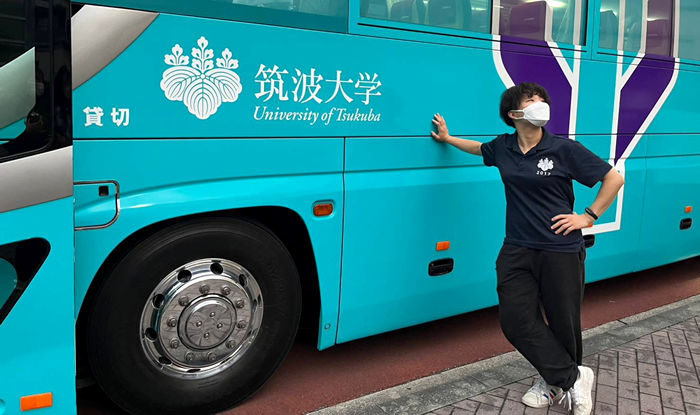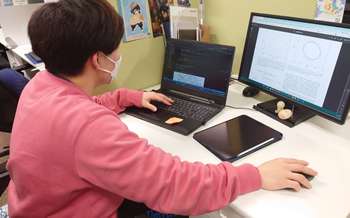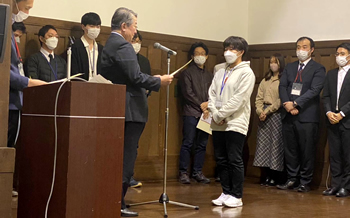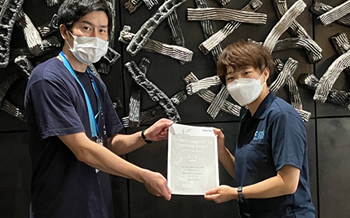- Fields of study:
- Neuroscience of sleep / Mathematical informatics
- Mentors:
- Dr. Arisa Hirano / Dr. Hiroyasu Ando

Beyond the Wall of Academia: Discovering the Unknown Realms
It all started back in high school when I dreamed of artificial intelligence. My curiosity branched out to wonder what kind of information processing is taking place in living organisms, and what kind of phenomena are happening in the brain. With this in mind, I entered the neuroscience laboratory of the College of Medical Sciences at the University of Tsukuba. For someone like me who has this background, the Ph.D. Program in Humanics was very attractive.
In this program, students can acquire knowledge from a wide range of fields, not just limited to their own specialties. We can also take advantage of the unique double-mentor system and challenge ourselves in the fusion research of biomedical sciences and physical sciences, engineering, and informatics. Currently, I am working on elucidating the mechanism of circadian rhythm control using mice from two perspectives: neuroscience and mathematical informatics. In class, I am relearning math that I did not touch upon in my undergraduate years and using programming to learn data analysis techniques that I apply to my research. Every day, I feel the height and multitude of walls that I must overcome, but at the same time, I am leading a fulfilling research life full of stimulation and productivity.
Most of all, this program attracts motivated colleagues from both domestic and international backgrounds who are passionate about research. With diverse backgrounds, we can stimulate each other and raise the level of our research.
The Ph.D. Program in Humanics is an ideal place for students who not only want to stay in their own fields, but also want to challenge themselves in new fields and carve out unknown territories through creative research. A innovative environment awaits where students can approach problems in their own unique ways and produce new discoveries and ideas. Let's start our research together to create the future.
[Time table of an ordinary day]

Simulation using Python

Received the Best Poster Award at the 29th Annual Meeting of the Japanese Society for Chronobiology held in Utsunomiya.

Won the SnapTec® 50 handling competition held at NEURO2022.
